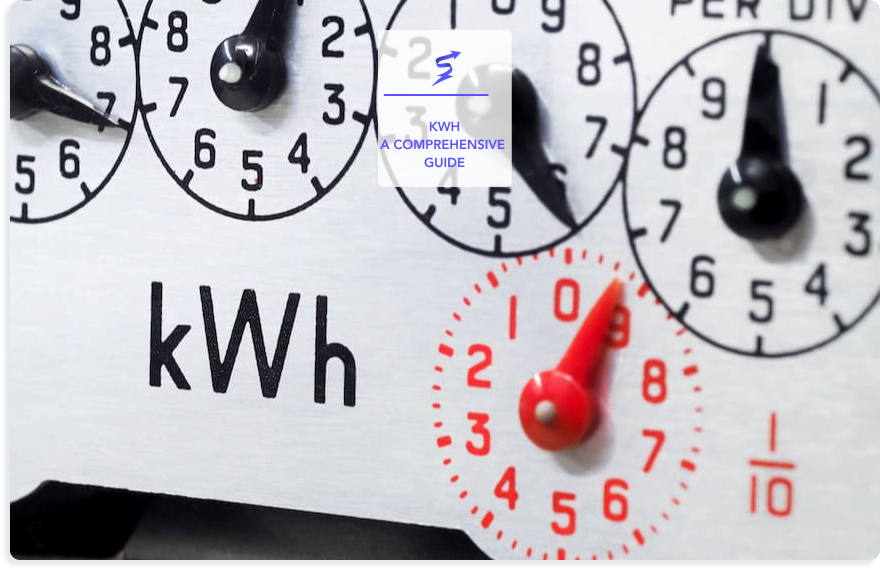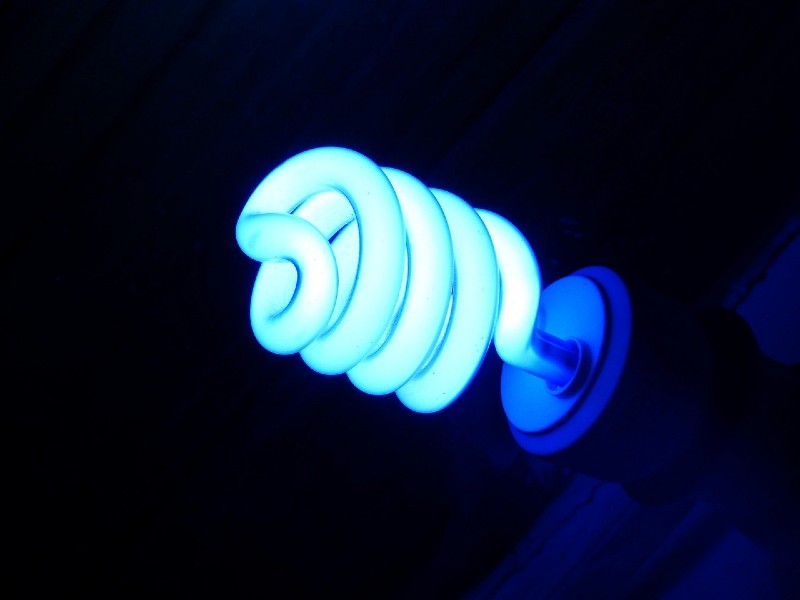kWh: What can I power with a Kilowatt-hour?

Are you ready to make the switch?
Switching energy suppliers has never been easier. Simply let our experts cater to all
of your gas and electricity needs.
Notice
You might have seen the letters "kWh" when looking at your energy bill. Chances are you glossed over it to check out the outstanding amount. But these three letters could be the most important parts of any energy statement. Why? Well it can define your usage and explain why that outstanding amount is the way that it is. That’s why it’s worth knowing a bit more about kWh to understand how energy in the UK works.
Last updated: November 2022

What does kWh stand for?
kWh stands for kilowatt hours and understanding how they work could help you to get a clearer picture of:
- How your provider works out your energy bills.
- How much energy each of the appliances in your home uses.
- Why turning off or limiting the use of some appliances in your home could help you make big savings on your bill.
Once you understand how kilowatt hours work, you can use the information on your bill to streamline your energy use. This will help you to cut costs and use less. Knowing more about kWh is also great if you’re thinking about switching suppliers. This is because it can help you to work out which providers offer the best value tariffs for your needs.
Knowing how kWhs work can help you better understand your energy consumption and help you save money on the long run.
What exactly is a kWh and why are they so important?
Put simply, a kWh is a way of measuring how much energy you are using. Many people incorrectly assume that it relates to the number of kilowatts you are using in one hour. But that is not exactly how it works. In fact, a kwh is a unit of measurement. It keeps track of the amount of energy you would use if you kept a 1,000 watt appliance constantly running for one hour.
That might sound a little confusing but it’s simple if you break it down. Imagine you have a 100 watt lightbulb switched on. It would take 10 hours of being turned on to use up 1 kWh of energy. Alternatively, a 2,000 watt washing machine would use 1 kWh in just 30 minutes.
They are so important because once you understand what a kWh is and how it works in your home, it opens the door to saving money on your energy bills.
![]()
What kind of appliances operate at 1kWh?
It can be hard to pinpoint exactly what appliances operate at around 1kWh as even within similar items the wattage can vary. However, to give you some idea of roughly how much a kWh would be, here are some examples:
- Running a 2,000 watt radiator for 30 mins.
- Putting on a wash that lasts about an hour with a 1,000 watt washing machine.
- About three hours watching a modern big screen TV.
- Running your laptop all day.
- About a week’s worth of having your WiFi router plugged in.
How much does energy cost?
To give you a better feel for the prices of energy tariffs, we present the cheapest energy tariffs in the UK. However, these depend on various aspects.
It is possible to make some general assumptions about energy consumption and find the cheapest supplier for these average scenarios. Based on the average consumption statistics for the UK provided by the regulator Ofgem, the following table shows the cheapest suppliers for a medium energy consumer in the UK.
Prices vary from one city to another, so we display national averages
Based on Ofgem’s TDCV (2,900.00 kWh of ⚡ and 12,000.00 kWh of 🔥 per year).
A tariff is green if for each kWh consumed a kWh of renewable energy is injected in the grid.
Cheapest Energy Live Tariffs
The following offers are all available at the moment.
| Supplier | Name | Type | Availability | Annual Cost | Green Tariff |
|---|---|---|---|---|---|
 | Dual Fuel | Double Gold | ✅ | 2,511.54* | ✖️ |
 | Dual Fuel | Prepayment | ✅ | 2,581.02* | ✖️ |
 | Dual Fuel | Prepayment Variable | ✅ | 2,608.87* | ✖️ |
Prices vary from one city to another, so we display national averages
Based on 2,900.00 kWh of ⚡ and 12,000.00 kWh of 🔥 per year on average
Is a Green tariff if all the energy consumed is compensated by renewable energy injections in the grid.
Are kW and kWh different?
Yes they are. A kilowatt, or kW, is a measure of power. It tells you how powerful an appliance is. So, for example, if you buy a new fridge then it will probably have a power rating somewhere around the 200 to 400 watt mark.


Looking for the best energy deals?
Free Service
Request a callback from our experts at Switch Plan to help you find
the best energy contract .
More info
By contrast, a kWh is a measure of energy. It takes the unit of power for an appliance (watt) and multiplies that by a unit of time (hour) to give you a rating for how much power something uses over time. This in turn helps you to work out how much it costs to run an appliance.
How many kWh should I be using each week?
Your energy consumption depends on many factors. It can vary according to:
- The size of your home and how you choose to heat it.
- The time of year, with less demand for central heating and other appliances during the warmer summer months.
- How many people live in your home and what their habits are.
- Whether you spend a lot of time at home or are out at work most of the day.
These are just a few of the countless variables that affect your energy consumption and kWh numbers.
However, to give you some idea of an average amount for kWh readings, energy industry estimates say:
- A single person living in a small property will use around 2,000 kWh of electricity and 9,000 kWh of gas per year. This is assuming the central heating and hot water runs on a gas boiler.
- A three bedroom house with a small family who work outside the home might use 3,500 kWh of electricity and 13,500 kWh of gas.
The more people you have in a property, generally the more kWh you will use. However, as heating costs are the same whether it is one person or ten benefitting from it, sharing a house with more people tends to be more energy efficient. Whether it is cost efficient too depends on who pays the bills.
Using kWh to cut costs
By understanding what appliances use the most kWh in the home, you can make the first step to saving energy and reducing your bills.
- Cooling and heating: 47% of energy use
- Water heater: 14% of energy use
- Washer and dryer: 13% of energy use
- Lighting: 12% of energy use
- Refrigerator: 4% of energy use
- Electric oven: 3-4% of energy use
- TV, DVD, cable box: 3% of energy use
- Dishwasher: 2% of energy use
- Computer: 1% of energy use
Do appliances use energy when on standby?
![]()

How to use kWh to save money
When you get your next bill, look at the kWh figure and then spend some time checking out the wattage of your major appliances. You can then use these numbers to get a rough estimate of which appliances use the most energy and where you can cut back.
You can also cut costs in the following ways:
Use less energy
The way to cut back on your kWh and save money is to make sure all your appliances are running as efficiently as possible. You can do this by buying energy saving alternatives but also by external factors such as insulating your home. If this is done correctly you could save as much as £300 a year on your heating bill.
Other ways you can be more energy efficient include:
- Only using what you need, especially when running baths or boiling kettles.
- Turning machines off standby.
- Using low energy alternatives such as energy-saving light bulbs.
- Insulating better and using draught excluders.
- Washing clothes at lower temperatures.
- Fitting double glazed windows.
![]()

Can understanding kWh help me to switch providers?
Once you know and understand how many kWh you are using and what times of day you are using them, you can use this information to find a more suitable energy tariff and save money.
We can handle all aspects of switching your energy supply if you think you can find a better kWh cost for your needs.
Want to know more? Then get in touch.
Looking for a better energy deal?Leave your phone number to request a call back from us!
Free Service
FAQ
Can I use a kWh calculator to determine my energy use?
Yes you can. There are plenty of online kWh calculator tools that let you work out or estimate your kWh usage and use this to predict your energy bill total.
⚖️ Can kWh be compared to other energy measurements?
Again, yes. There are a number of other units of energy used to measure usage. You can look online to find kWh calculators that can convert into other units. These include:
- kWh to hp
- kWh to joules
- kWh to mWh
- kwh to watts
How much does a kWh cost in the UK?
The exact price of a kWh depends on the type of fuel you are using and which provider supplies your energy. It can even depend on the region where you live. However, the average prices for a kWh or energy in the UK is as follows:
- Electricity per kWh is 14.37p.
- Gas cost per kWh is 3.80p.
As you can see, gas is much better value than electricity, which is why many homes continue to use it for their main central heating and hot water supply. However, these numbers can fluctuate over time.
What are the easiest ways to reduce my kWh?
There are several quick and easy checks to help reduce your kWh.
- Check the insulation in your walls and loft space (if you have one).
- Take showers instead of baths.
- Turn off appliances on standby.
- Switch out old bulbs.
- Change to an on demand hot water system.
- Use less water to wash up after meals.
Making any of the above changes should help you to be more energy efficient and make your kWhs go further.
Updated on 29 Jan, 2024
William Dautel
UK Content Manager
William is a content marketing specialist. After 3 years writing brand strategies he joined papernest to help create the best content to help people handle and save on their utilities.
William is a content marketing specialist. After 3 years writing brand strategies he joined papernest to help create the best content to help people handle and save on their utilities.


Comments